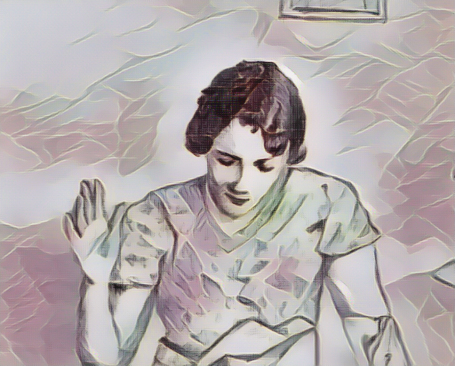Certain stories have a way of bringing back memories from my own life. One in particular comes to mind from back in the 1980s, when I found myself doing some last-minute Christmas shopping at the newly opened local shopping centre.
I decided to stop by the ladies lounge to freshen up. While I was at the sink, fixing my hair, a middle aged woman came in, firmly pulling along a sulky, somewhat spoilt young boy. He dragged his feet, arms crossed, and wore a pout that made it clear he was used to getting his way.
She wasted no time—her face flushed with anger, jaw clenched tight, and eyes flashing with frustration. Marching straight for a padded bench along the far wall, she sat down and yanked her son across her lap with a force that left no doubt about her mood. The boy squirmed and pouted, his sulky attitude on full display even as his mother scolded him for his repeated misbehavior; apparently, he had knocked over a display in one of the shops. Each word was clipped, her tone rising and falling with exasperation, her brows furrowed deeply as she glared down at him.
Right there in the lounge, her anger poured out in a flurry of eight or nine sharp, loud smacks on his bottom. Her arm moved with brisk, almost furious precision, the sound bouncing off the tiled walls, and the boy’s wails filling the space. Even as he cried, there was a stubborn, spoilt edge to his protests, his lips still set in a pout. Her lips were pressed into a thin, hard line, and her eyes narrowed with every smack. When she was done, she let him stand and, still breathing heavily, told him he should be grateful they weren’t at home. If they were, and she had her slipper, he’d have a real reason to cry—her voice low and simmering with barely contained fury.
Then, something happened that I’d never witnessed before—a child openly challenged his mother. Through his sobs and sulky sniffles, he threatened to call the police and have her arrested, saying that’s what the local schools had taught him to do.
Both the mother and the other woman near me—who, like myself, was pretending not to pay attention—were taken aback and clearly upset. The mother’s nostrils flared and her cheeks reddened even more, her hands trembling slightly as she dug through her purse and pulled out an old-fashioned wooden hairbrush.
The atmosphere in the lounge shifted instantly. The mother’s grip on the polished handle was white-knuckled, her jaw set with a new, steely resolve. Her eyes blazed with a mix of anger and determination as she calmly but firmly repositioned her son over her lap, ignoring his renewed protests, wide, fearful eyes, and lingering sulky pout. The room seemed to hold its breath as she raised the hairbrush, her lips pressed together in a grim line.
The first crack of wood against fabric rang out, sharp and unmistakable, echoing off the tiled walls with a sound far more severe than the earlier smacks. The mother’s face was a mask of stern fury, her brows drawn tight, her mouth set in a hard, unyielding line. The boy’s reaction was immediate—a gasp, then a high, desperate wail, his legs kicking and his hands clutching the bench for support. The sulky, spoilt attitude melted away, replaced by genuine distress as each swat landed with a crisp, resonant thwack, the mother’s movements measured but fueled by her anger, her body tense and unwavering.
The emotional tension in the lounge was palpable. The other women, though pretending to busy themselves at the sink, exchanged glances, their faces a mix of discomfort and silent approval. The boy’s cries grew louder, his face flushed and streaked with tears, the sting of the wooden hairbrush leaving a lasting impression both physically and emotionally. The mother’s eyes never softened, her posture rigid, her breathing deep and controlled as she delivered each swat.
After several firm strokes, the mother paused, her chest rising and falling as she steadied herself, and set the hairbrush aside. The boy, now thoroughly chastened and with a sore, reddened bottom, sat on the bench, quietly sobbing as his mother calmly put the hairbrush back in her bag, her face still set in stern disapproval.
The other woman, a big woman who seemed to be an opinionated busy body with far too much to say and who really would have been better off minding her own business, informed the mother that she’d done the right thing. She then knelt in front of the boy and, with a flourish, dabbed his tears with a paper towel. She told him that if he were her child and tried any more mischief or talk of calling the police, she’d call them herself and have them come spank him with a big leather belt until he couldn’t sit.
She looked up at the boy’s mother with a smile and asked if she needed the police’s phone number. The mother turned to her son and asked if that would be necessary, her voice still edged with lingering irritation, and after he assured her it wouldn’t, she declined with a tight smile.
When the mother and her son finally left, it was obvious that the old-fashioned understanding between parent and child had been restored. Judging by the way the boy kept rubbing his backside as they walked out, I doubted he’d soon forget the lesson—or that his mother, with her fierce resolve and fiery temper, would hesitate to remind him if needed.







